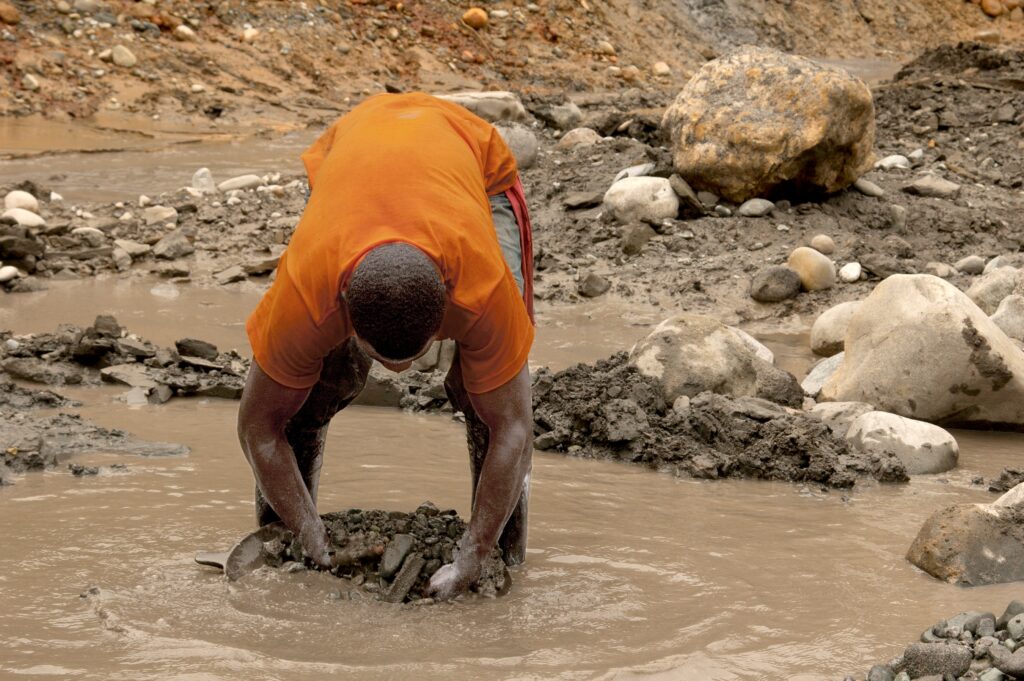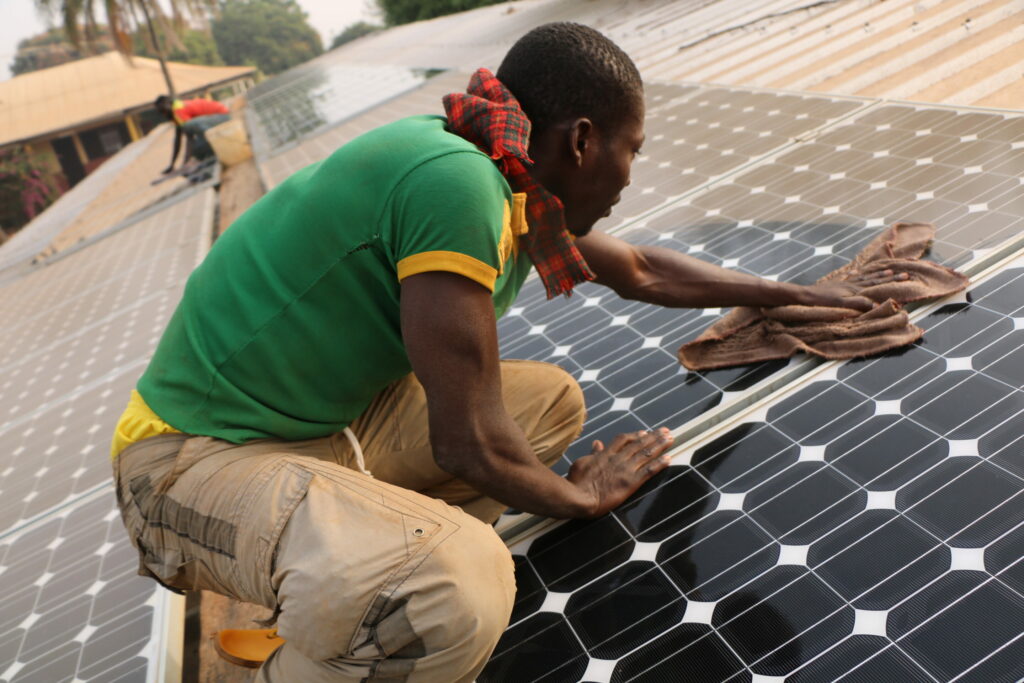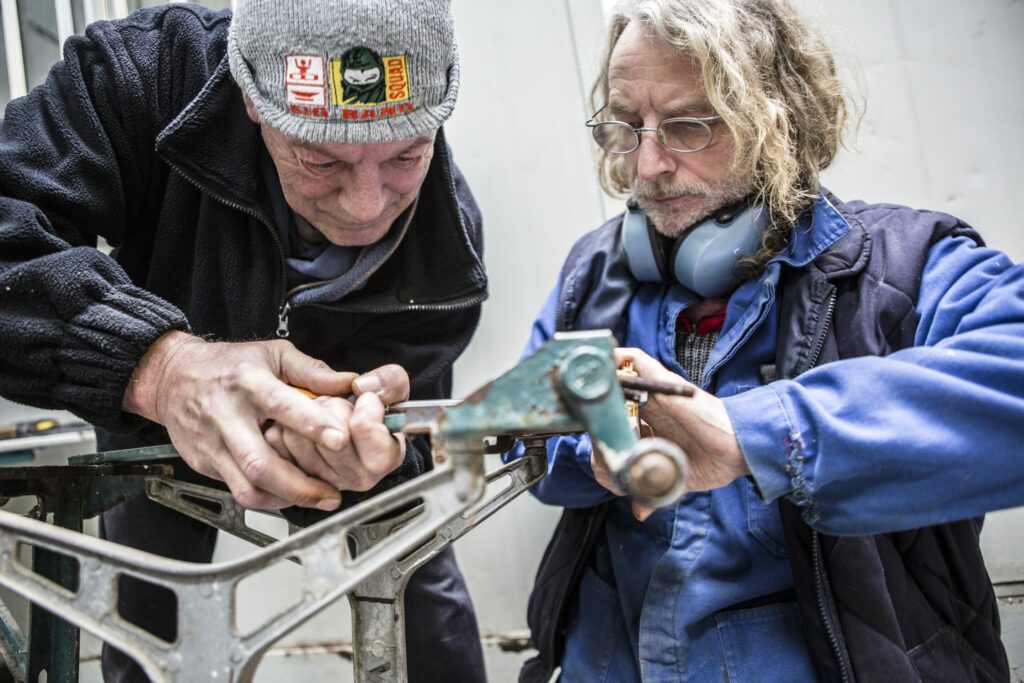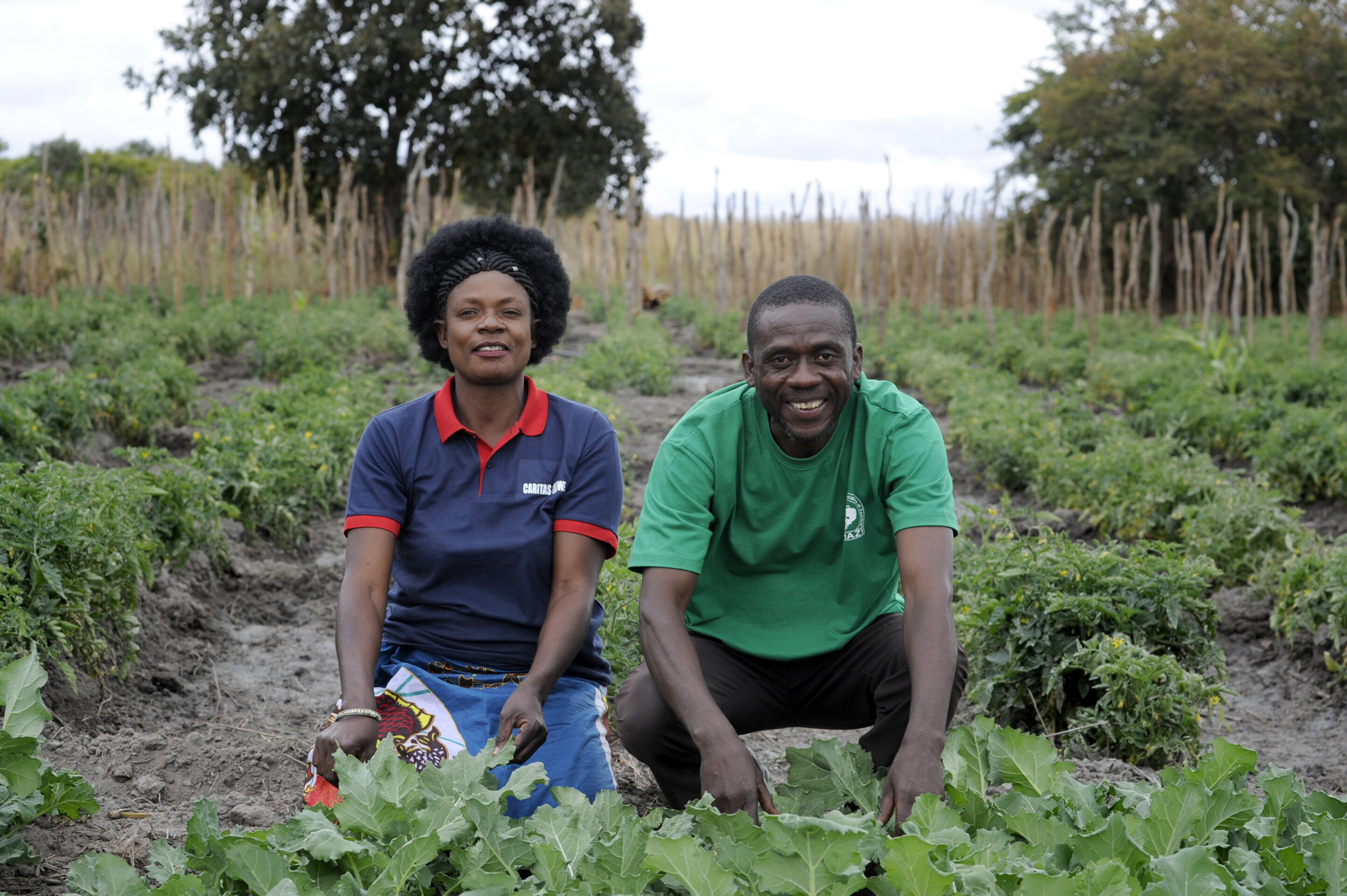For nearly a century, the economic measurement of progress has been – and still is – GDP. While it supposedly measures everything – the total production of the economy – there are still many areas of our economy which it leaves out.
From Caritas Europa's perspective, the EU's almost exclusive focus on GDP growth often comes at the cost of the wellbeing of people and the environment.
Constructively bucking the trend, Caritas Europa's latest publication, “Going beyond economic growth: Europe’s role in building a just economy for the common good”, explains some of the myths and false premises underlying the EU’s green growth policies (contained in the EU’s Green Deal) and the new international partnerships proposed under the Global Gateway.
It also elaborates, from the experiences of Caritas organisations in Europe, Africa and Latin America, on how these policies and partnerships perpetuate harmful, outdated models of growth that fail to promote care for people and the environment. But Caritas Europa also offers recommendations for the reform of the global economy, building upon already existing practical solutions. These are not utopian ideas, on the contrary, they show that continuing to rely on an economic model that is incompatible with planetary boundaries is bound to fail.

Gold mining in Rio Atrato, Colombia. © Steve Cagan/SCIAF
Overshooting planetary boundaries
Several scientific assessments confirm that the current global model of resource use to deliver economic growth is driving an unprecedented triple planetary crisis of climate change, biodiversity loss and pollution. Europe is no exception. The EU's material footprint – the total amount of fossil fuels, biomass, metals and minerals it consumes – is currently an alarming 14.8 tonnes per capita annually, more than double what is deemed sustainable and just.
Economic growth does not prevent poverty
At the same time, contrary to popular belief, more economic growth does not necessarily lead to more social progress and an improved welfare state. For decades we have been following the same, tired recipe: grow the economy first, then use the wealth to combat poverty. But the idea that increasing production will lead to the needs of all members of society gradually being met is simply untrue. When it comes to income, according to UN data, in 2022, 9% of the world's population was living in extreme poverty and, according to the World Bank, in 2023, 45.6% of the world lived on less than $6.85 per day.
In his foreword for Caritas Europa's publication, Olivier De Schutter, UN Special Rapporteur for Extreme Poverty and Human Rights, states “placing all our hopes into achieving an increase of the GDP, as a precondition for everything else, betrays a worrying failure of political imagination.”

Jean Emmanuel Sem, worker at Bozoum, Central African Republic. © Jiri Pasz/Caritas
Does the European vision for “green growth” offer any solutions?
Over the last few years, EU policymakers have increased the use of the term “green growth” to make growth sound more sustainable, despite the overwhelming evidence of the failures and dangers of following the logic of endless economic growth.
One example of this is the rush to open new mining projects in countries where reported human rights violations relate to the mining of minerals for renewable energy, all for the purpose of the “energy transition” in Europe. In its new publication, Caritas Europa has looked at some cases in Rwanda, Zambia, Colombia, Brazil and Argentina. Through the collaboration with Caritas staff in those countries, they explain how multinationals working for the “green transition economy” are in fact replicating the destructive model of the fossil fuels industry when it comes to human rights violations and environmental degradation standards.
Current system abuses living beings
The truth is that, within our current system, too often the economy can only thrive if and when we exploit living beings.
The quest for growth leads policymakers to promote initiatives that maximise efficiency gains and monetary value. Despite politicians having a responsibility to ensure a democratic, socially just society, there is a distressing lack of long-term strategic thinking by EU leaders, who are sacrificing important principles for marginal, short-term gains. Promoting a just economy is a massive investment in our future.

The job guarantee project in Nievre, France. The project offers a permanent contract to all long-term unemployed people, serving useful and non-competing activities, and develops market gardening, recycling and motor farming activities. © Christophe Hargoues/Secours Catholique-Caritas France
What can Europe do?
To transform Europe’s growth-driven and unequal economy into a just one, there are many solutions. One example would be to initiate a serious plan, with binding targets, for the reduction of energy and resource consumption in Europe. Supporting the reform of the global taxation architecture at UN level, based on the principles of equity and justice, would be a further key step. Another would be to invest in social protection and social services in Europe and in partner countries to ensure that everyone has access to the essentials of life such as housing and a decent income.
Europe must also acknowledge its historical responsibility for climate change and fulfil its commitments on decarbonisation and climate financing to support low and medium income countries. We must always remember that globally the richest 1% of the world, the “polluter elite”, is responsible for more carbon emissions than the poorest 66%.
Finally, EU leaders cannot ignore the growing movement of CSOs, academic experts, scientists and others insisting that our current economic measures don’t pursue the wellbeing of our societies now and in the future. What kind of world do we want to live in and leave behind for those who come after us?
It is never too late to act for a fairer society and for a just economy.
Find out about Caritas Europa's new report here.

Participant of the "Food Security and Resilience in the Lake region” Caritas project, Kaya village, Chad. © Michael Stulman/Catholic Relief Services (Caritas U.S.)

